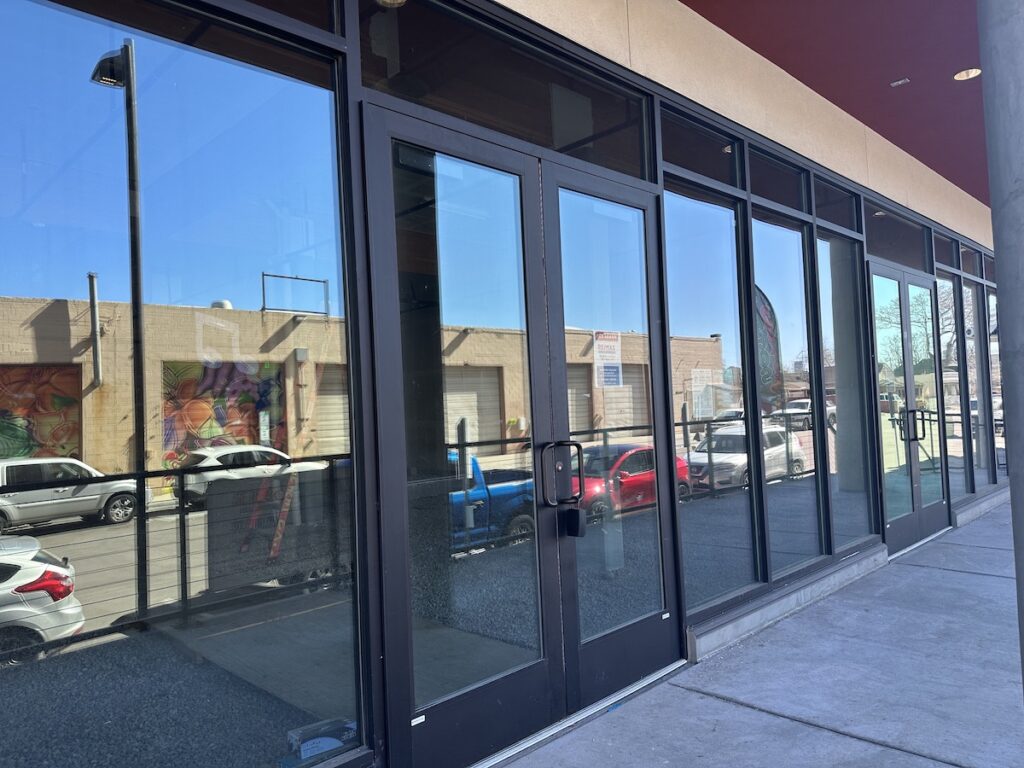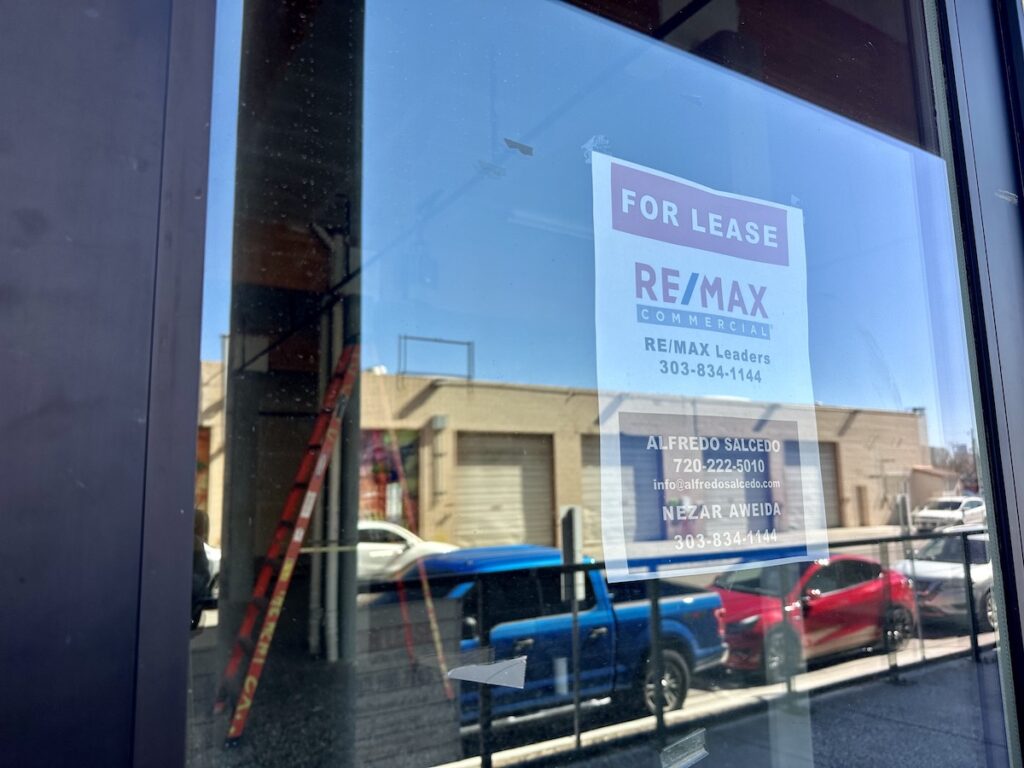By London Lyle

Plans for a grocery store co-op at the Viña Apartments remain in limbo, with repeated delays since 2022 casting uncertainty over its future.
Noir Co-Op Market, a community-run initiative providing fresh produce to the Elyria-Swansea area, was expected to occupy the space at 2111 E. 48th Ave., but ceased operations and withdrew in 2023. Former District 9 Councilmember Candi CdeBaca, once a significant advocate for the project, also ceased her involvement in 2023.
The vacant commercial space sits next to Tacos El Huequito and Tepeyac Community Health Center, but workers at both entities are unsure what is happening with the space.
“We’ve been left largely in the dark in terms of recent updates. We still hope that they open a grocery store there. It would be helpful for our patients,” said Catherine Dempsey, development manager at Tepeyac Community Health Center.
Columbia Ventures, the developer and equity partner for the six-acre site that the vacant space sits on, had three objectives for the first phase of development on the property once they acquired it in 2022: “to house 150 apartments, provide much-needed fresh food and low-cost medical services to the Elyria Swansea community.” Two of these objectives have been met, with Viña Apartments even receiving the Denver Mayor’s Design Award. Still, the community has yet to achieve the goal of providing fresh food to the area’s residents. RE/MAX Real Estate Company manages prospective lessees for the space.
When Noir Co-Op Market, the former lessee, pulled out of the project, Columbia Ventures became responsible for finding a replacement tenant. While there’s no longer a particular date by which the project is to wrap up, folks at Columbia Ventures haven’t given up on the idea of an eventual grocery store.

“We hope to land a market or carniceria,” said Dillon Baynes, co-founder and managing partner at Columbia Ventures.
Despite the recent construction of affordable housing, the Elyria-Swansea neighborhood has been without an adequate grocery store since the 1960s. This has effectively left residents in a food desert, meaning access to healthy, fresh food is slim to none for those without reliable means of transportation.
Roberto Meza, co-founder and CEO of East Denver Food Hub, expressed disappointment in the disbandment of the original project. Meza, who worked closely with Noir Co-Op, stepped back from the project nearly a year ago, closely followed by Flor Marquez, the former project manager who discontinued her tenure earlier this year.
“It’s been quite a rocky road,” Meza said. “This is definitely a big wake-up call to community-driven, passionate people who are involved in these sorts of projects.
“There are some things we need to take into account if we ever hope to complete a successful project or gain the trust of the community again,” he continued, citing disorganization as a major liability for those working on the project.
The Colorado Health Foundation, a Denver nonprofit dedicated to health equity and racial justice, has worked closely with the project’s fiscal sponsor, the Center for Community Wealth Building, since its inception. It assisted in grant oversight and worked with Noir Co-Op Market as it built out its initial model.
“We became engaged because we have a food access and security priority,” said Amy Duggan, program officer at the Colorado Health Foundation. “It’s been a really important body of work for us, work that’s very community-centered and addresses the needs of neighborhoods that have really been left out of having a healthy and strong food infrastructure for individuals who are living on low incomes.”
However, after Noir Co-Op Market pulled out, “there’s been some shifting of gears as more community members have gotten engaged and they’ve put a pause on a few things. The idea is that the project is really reflective of what the community wants and needs in that neighborhood,” Duggan said, adding that concrete plans for the future of the space and whether or not a grocery co-op is still in the cards remains to be decided. “At this point, all the ideas are on hold while they delve a little bit deeper to really understand the community’s needs.”
Since the spring, a resident steering committee has largely run the show, leading to more resident voices rather than organizations. While it’s agreed that fresh, healthy food is needed, the proper way to get there remains in flux.
The grant for the vacant space, however, is specifically to expand healthy food access, so while Noir Co-Op might be off the table, the space is still to be used for some type of market. Duggan echoed Meza in her explanation of the original project’s disbandment, adding, “I think it’s a natural progression of a project that started out being run by organizations, and even if those organizations are deeply rooted in the community, it’s very different than starting with the residents themselves.”
Although a concrete timeline for the project’s impending fate remains to be seen, those involved still have hope for its future.
“I think the project is at that phase right now where it’s very resident and neighbor-driven. And that’s really important for the future of the project,” Duggan said.

Thank you for this informative article! I live and work in Colorado Springs and have been involved in the Southeast COS Redevelopment project which has been resident led by a group called RISE Southeast. Our solid Rock Community Development Corporation is doing similar work and I am so happy to read about projects like this in other areas.